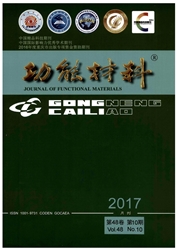

 中文摘要:
中文摘要:
用海藻酸钠为载体将菌株固载于水泥石表面,为菌株生长繁殖、酶化反应及CaCO3矿化沉积提供微环境,4d后在水泥石表面生成均匀连续并与基材粘结牢固的白色复合层。扫描电镜和能谱分析初步得出复合层由规则球形CaCO3颗粒和海藻酸钙多孔网络组成。毛细吸水实验结果表明,覆膜后水泥石吸水系数比覆膜前降低一个数量级左右,表面抗渗性能显著提高。实验得出菌株前期生长过程是否加底物培养对覆膜效果影响不大,而上清液中细菌有机分泌物可有效增强覆膜效果。微生物沉积CaCO3在水泥基材料表面防护领域有广阔应用前景。
 英文摘要:
英文摘要:
Alginate was selected to immobilize the centrifuged bacteria and create a kind of micro-environment for bacterial growth and enzyme digestion on the surface of the specimen. SEM results showed that the obtained composite layer consisted of regular spherical particles and porous network. It is preliminarily concluded that the particle was CaCO3 from EDS result and its size was about 3-4μm with homogeneous distribution. Furthermore, a capillary water absorption test was carried out to determine the improvement of penetration resistance of the treated specimens. Results indicated that the penetration resistance of treated specimens was all greatly increased under two kinds of urea addition method and the organic matrix excreted by bacteria has a positive effect on improving the permeation resistance of the deposited layer. Utilizing this kind of bio-deposition of a protective layer induced by immobilized bacteria on cement based materials has a significant application prospect in surface protection of construction materials.
 同期刊论文项目
同期刊论文项目
 同项目期刊论文
同项目期刊论文
 期刊信息
期刊信息
